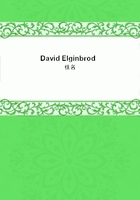
第150章
"To Lady Euphrasia, might be a worldly crystal altogether. This might reveal demons and their counsels, while that was haunted by theological angels and evangelical ghosts.""Ah! I see. I should have thought, however, that the count had been too much of a man of the world to believe such things.""He might find his account in it, notwithstanding. But no amount of world-wisdom can set a man above the inroads of superstition. In fact, there is but one thing that can free a man from superstition, and that is belief. All history proves it. The most sceptical have ever been the most credulous. This is one of the best arguments for the existence of something to believe.""You remind me of a passage in my story which I omitted, as irrelevant to the matter in hand.""Do let me have it. It cannot fail to interest me."Hugh gave a complete account of the experiments they had made with the careering plate. Now the writing of the name of David Elginbrod was the most remarkable phenomenon of the whole, and Hugh was compelled, in responding to the natural interest of Falconer, to give a description of David. This led to a sketch of his own sojourn at Turriepuffit; in which the character of David came out far more plainly than it could have come out in any description.
When he had finished, Falconer broke out, as if he had been hitherto restraining his wrath with difficulty:
"And that was the man the creatures dared to personate! I hate the whole thing, Sutherland. It is full of impudence and irreverence.
Perhaps the wretched beings may want another thousand years' damnation, because of the injury done to their character by the homage of men who ought to know better.""I do not quite understand you."
"I mean, that you ought to believe as easily that such a man as you describe is laughing with the devil and his angels, as that he wrote a copy at the order of a charlatan, or worse.""But it could hardly be deception."
"Not deception? A man like him could not get through them without being recognised.""I don't understand you. By whom?"
"By swarms of low miserable creatures that so lament the loss of their beggarly bodies that they would brood upon them in the shape of flesh-flies, rather than forsake the putrifying remnants. After that, chair or table or anything that they can come into contact with, possesses quite sufficient organization for such. Don't you remember that once, rather than have no body to go into, they crept into the very swine? There was a fine passion for self-embodiment and sympathy! But the swine themselves could not stand it, and preferred drowning.""Then you do think there was something supernatural in it?""Nothing in the least. It required no supernatural powers to be aware that a great man was dead, and that you had known him well.
It annoys me, Sutherland, that able men, ay, and good men too, should consult with ghosts whose only possible superiority consists in their being out of the body. Why should they be the wiser for that? I should as soon expect to gain wisdom by taking off my clothes, and to lose it by getting into bed; or to rise into the seventh heaven of spirituality by having my hair cut. An impudent forgery of that good man's name! If I were you, Sutherland, I would have nothing to do with such a low set. They are the canaille of the other world. It's of no use to lay hold on their skirts, for they can't fly. They're just like the vultures--easy to catch, because they're full of garbage. I doubt if they have more intellect left than just enough to lie with.--I have been compelled to think a good deal about these things of late."Falconer put a good many questions to Hugh, about Euphra and her relation to the count; and such was the confidence with which he had inspired him, that Hugh felt at perfect liberty to answer them all fully, not avoiding even the exposure of his own feelings, where that was involved by the story.
"Now," said Falconer, "I have material out of which to construct a theory. The count is at present like a law of nature concerning which a prudent question is the first half of the answer, as Lord Bacon says; and you can put no question without having first formed a theory, however slight or temporary; for otherwise no question will suggest itself. But, in the meantime, as I said before, I will make inquiry upon the theory that he is somewhere in London, although I doubt it.""Then I will not occupy your time any longer at present," said Hugh.
"Could you say, without fettering yourself in the least, when Imight be able to see you again?"
"Let me see. I will make an appointment with you.--Next Sunday;here; at ten o'clock in the morning. Make a note of it.""There is no fear of my forgetting it. My consolations are not so numerous that I can afford to forget my sole pleasure. You, Ishould think, have more need to make a note of it than I, though Iam quite willing to be forgotten, if necessary.""I never forget my engagements," said Falconer.
They parted, and Hugh went home to his novel.